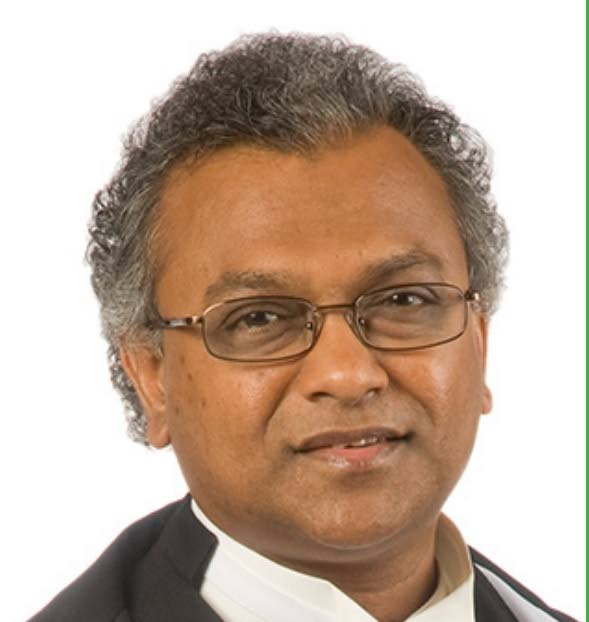Judge: Police expected to be politically neutral

CITIZENS are entitled to expect that police officers who accepted the duty and responsibility to protect and serve them will do so through a neutral and apolitical lens.
It is for this reason that police officers, regardless of rank, must maintain an appearance of impartiality especially in the public domain to preserve public confidence and avoid public disorder in society.
These were the views of a High Court judge who dismissed the constitutional claim of a police constable who was suspended in 2021 for a social media post considered to be of a political nature.
Brad Lee Lum, who was assigned to the Anti-Kidnapping Unit, contended that regulation 138 of the police service “disproportionately” breached his rights to freedom of expression, political expression and privacy.
He also argued it was vague, silenced police officers from expressing political opinions, including in private settings, and prevented them from commenting on national or local political and administrative matters without the police commissioner’s permission.
However, Justice Robin Mohammed disagreed.
He said while there was no doubt the regulation intruded on police officers’ rights to freedom of expression and to express political views, these rights, while fundamental to democracy, “were not absolute.”
“Interference or restriction on these rights of police officers may be permissible if it is appropriately balanced against the legitimate public interest which the authorities aim to protect.”
Mohammed said all police officers “must be guarded in their expression of political views in the public domain.”
The regulation, he said, was intended to maintain and protect an impartial and apolitical Police Service.
The post on Lee Lum’s Facebook account, on Saturday, June 19, 2021, read: “Where is Abu Bakr (man wearing a turban emoji) boi? Feel this Government (businessman emoji) need ah shake up yes. (Three thinking face emoji.)”
Lee Lum denied making the post, suggesting his account was hacked.
Two days later, when he reported to work, he was told to hand over his police kit and served with a notice of suspension. Two days after that, the police communication unit issued a media release announcing his suspension.
In his ruling, the judge questioned Lee Lum’s account of what the post meant if he said he did not make it.
“If his evidence that he was not the maker of the post is to be accepted, any interpretation of the post by him would at best be speculation.”
Lee Lum contended the post referred to Fuad Abu Bakr, political leader of the New National Vision, and was a call for him to speak out against perceived mismanagement of the covid19 crisis.
The State argued it referred to Yasin Abu Bakr, who was associated with the 1990 attempted coup, and a call for a similar political uprising to overthrow the government of the day.
“That aside, the words of the post and their cumulative effect must be construed in accordance with their manifest intention.
“Accordingly, I find that it was open for the commissioner and his delegated officers to review the post and form an opinion of what it meant…”
The judge also said it was evident, on a fair reading, that the post related to matters of a national and political nature, as there was a clear reference to the government and operations of the State.
Mohammed was critical of the comments of former commissioner Gary Griffith in the media release, saying they were “troubling and unfortunate.”
“An assertion that the regulations have the effect of depriving police officers of their fundamental rights is misconceived.
“The law permits restrictions and not absolute prohibitions or deprivation of liberties to exercise rights and fundamental freedoms.
“To suggest otherwise would be contrary to law and run afoul of our democracy.”
He added, “Moreover, even as our society progresses post-independence, one cannot ignore the present national political realities where in many respects citizens’ loyalties are divided along party lines.
“When these historical, institutional and cultural realities are borne in mind it is easy to appreciate why the objective of maintaining an impartial and apolitical police service is sufficiently important to justify restricting the claimant’s rights to political expression and freedom of expression.”
“Public expressions of political suasions or allegiances and administrative grievances by individual officers can undermine this expectation of neutrality and also unity and stability within the police service.”
He also said with the advent of social media, there was a need for a greater level of responsibility.
“When the actions of police officers attract negative media attention by the public, very little attention is paid to the rank and file of the officer.
“In fact, the disdained conduct of one constable can result in aspersions being cast on the police service as a whole.”
He also said it would be premature for him to intervene in the disciplinary tribunal.
Lee Lum will pay the State’s costs, which are yet to be quantified.
He was represented by Anand Ramlogan, SC, Renuka Rambhajan, Jayanti Lutchmedial, Jared Jagroo, Natasha Bisram and Vishaal Siewsaran.
The State was represented by Nadine Nabie, Nicol Yee Fung, Zara Smith, Chelvi Ramkissoon, Radha Sookdeo and Michelle Benjamin.


Comments
"Judge: Police expected to be politically neutral"